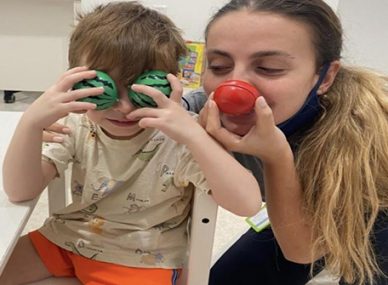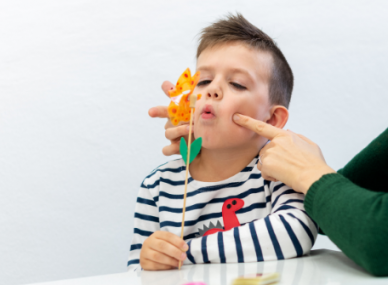What is Pretend Play?
Pretend play, also known as imaginative play or creative play, is a form of symbolic play that includes role-play scenarios that children have seen, experienced or would like to experience. It also integrates and reinforces previously acquired knowledge. In pretend play, children use many thinking abilities and strategies. For instance, they use an object to represent something else (considering the box as a bed for the doll), they attribute properties or emotions to an object as it was alive (kissing the teddy bear because it is sad or sick), and they pretend to be different characters (being a doctor, being a mother…). Through pretend play, children learn to engage in turn-taking, to consider others’ perspectives and to creatively problem-solve.
At What Age do Children Start Engaging in Pretend Play?
Between 18 and 24 months, toddlers will start to act out everyday actions they have seen their parents do like applying makeup or talking on the phone. At this stage, we talk about “deferred imitation” that emerges prior to “symbolic play”. By 24 months, they will start using their growing thinking skills and engage in pretend or symbolic play. Imaginary play skills will grow more complex with age.
What is the relationship between pretend play and children’s language skills development?
Researchers found that pretend play is an important marker for language development. In fact, in order to talk and say words, children must have access to symbolism because words are considered symbols that represent objects, people, and abstract concepts like emotions. Therefore, children starting to pretend is a sign that they are able to communicate using oral language, to say words and to expand their vocabulary. Furthermore, children engaged in pretend play often use higher forms of language than they would use in normal situations. The main reason is that they pretend to be a different person and this person is usually an adult.
Finally, YOU can contribute in the development of your children’s pretend play skills. How? Choose for them the right toys that encourage their imagination, help them set the scene for play, play with them, and show them how to use their imagination!
Maria El Hajj
Trilingual Speech Therapist






